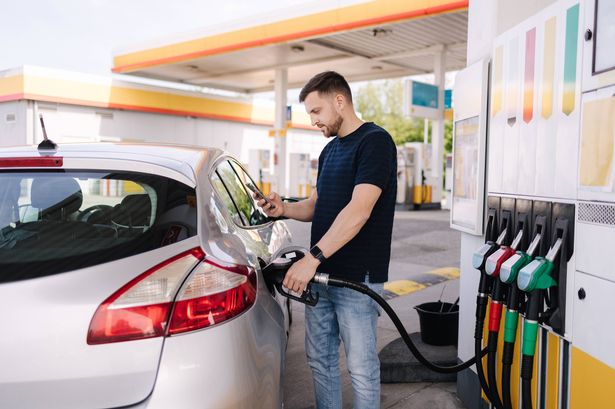World
Essential Petrol Station Rules Every Driver Must Follow

Motorists often relish the freedom of driving, yet this independence necessitates regular trips to refuel with petrol or diesel. Understanding the essential rules of petrol station etiquette can significantly enhance the refuelling experience. An automotive expert, who previously worked in car sales and now operates under the name Capturing Cars on social media, recently shared five critical guidelines that drivers should adhere to when refuelling in the United Kingdom.
Five Key Rules for Refuelling Safely
His recent TikTok video outlines these rules, which aim to ensure safety and efficiency at petrol stations. One surprising guideline he highlighted is that drivers should not return to their vehicles while refuelling. He remarked that this was a revelation to him, stating, “You are not allowed to get in or out of your car in the middle of refuelling because of static build-up and the potential, albeit pretty limited, that you could cause a dangerous spark.” This rule extends to passengers as well, as they should remain outside the vehicle during the process.
According to Driving News, a platform that shares insights from the National Traffic Safety Institute, allowing passengers to exit the vehicle during refuelling is advisable for safety reasons.
Another critical point raised by the expert is the prohibition of mobile phone usage while filling up. The expert explained that mobile phones can act as distractions, and there is a risk that they could generate a spark, which “can ignite the vapour that’s in the area of the petrol station.” When petrol ignites, the vapours can mix with air, potentially leading to sudden combustion or even an explosion.
Addressing Common Missteps
The third rule focuses on the obvious but often overlooked guideline against smoking or using lighters while at the pump. The expert emphasized that petrol vapours and open flames are a dangerous combination. E-cigarettes also pose a risk, as they could malfunction and create a spark.
Moreover, drivers are mandated to turn off their vehicle’s engine during refuelling. This guideline is enshrined in Rule 123 of the Highway Code, which stipulates that engines must be switched off to reduce emissions. Local authorities have the power to impose fines for non-compliance, as leaving an engine running can create sparks from the vehicle’s electrical systems or heated components.
The final point of caution shared by the car expert concerns the use of appropriate fuel containers. Only approved fuel cans should be used for storing fuel, as using unapproved containers can lead to dangerous situations. He recounted an instance from his past in the car dealership industry where he witnessed someone attempting to fill an ice cream tub with petrol.
In conclusion, the motoring expert emphasized that only individuals over the age of 16 are permitted to operate a fuel pump. Adhering to these guidelines not only promotes safety but also enhances the overall efficiency of refuelling at petrol stations. Understanding and following these regulations can prevent delays and ensure a smoother experience for all drivers.
-

 Health3 months ago
Health3 months agoNeurologist Warns Excessive Use of Supplements Can Harm Brain
-

 Health3 months ago
Health3 months agoFiona Phillips’ Husband Shares Heartfelt Update on Her Alzheimer’s Journey
-

 Science1 month ago
Science1 month agoBrian Cox Addresses Claims of Alien Probe in 3I/ATLAS Discovery
-

 Science1 month ago
Science1 month agoNASA Investigates Unusual Comet 3I/ATLAS; New Findings Emerge
-

 Science4 weeks ago
Science4 weeks agoScientists Examine 3I/ATLAS: Alien Artifact or Cosmic Oddity?
-

 Entertainment4 months ago
Entertainment4 months agoKerry Katona Discusses Future Baby Plans and Brian McFadden’s Wedding
-

 Science4 weeks ago
Science4 weeks agoNASA Investigates Speedy Object 3I/ATLAS, Sparking Speculation
-

 Entertainment4 months ago
Entertainment4 months agoEmmerdale Faces Tension as Dylan and April’s Lives Hang in the Balance
-

 World3 months ago
World3 months agoCole Palmer’s Cryptic Message to Kobbie Mainoo Following Loan Talks
-

 Science4 weeks ago
Science4 weeks agoNASA Scientists Explore Origins of 3I/ATLAS, a Fast-Moving Visitor
-

 Entertainment4 months ago
Entertainment4 months agoLove Island Star Toni Laite’s Mother Expresses Disappointment Over Coupling Decision
-

 Entertainment3 months ago
Entertainment3 months agoMajor Cast Changes at Coronation Street: Exits and Returns in 2025









